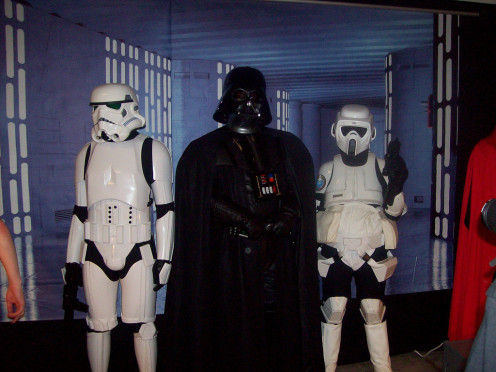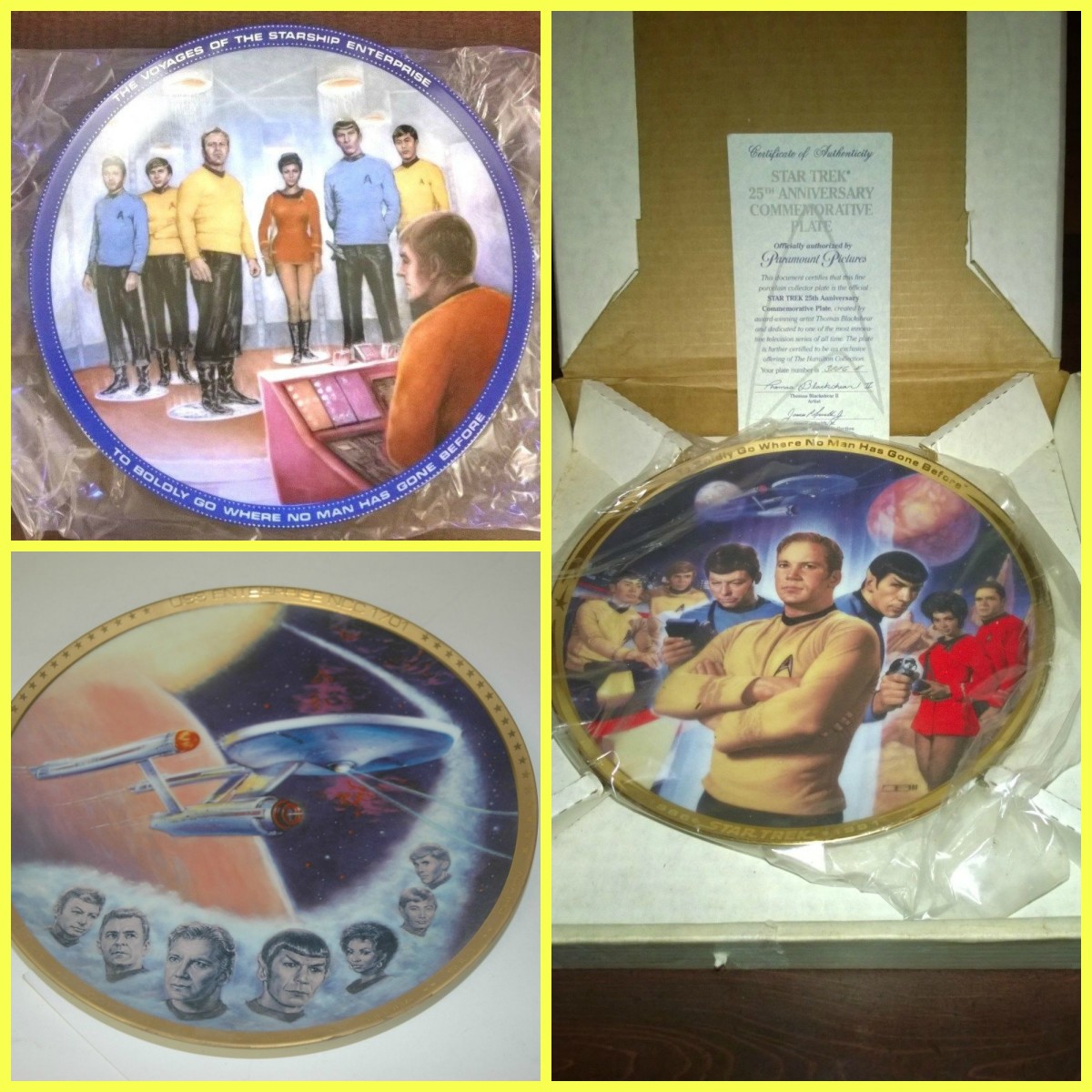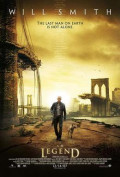- HubPages»
- Entertainment and Media»
- Movies & Movie Reviews»
- Science Fiction & Fantasy Films
The Role of Science Fiction in Society

Michelle Liew Tsui-Lin
I am not, by any means, a fan of science fiction or fantasy. Spaceships, aliens, and Nimbus broomsticks are at the edges of the last frontier of my empathy.
I do, though, understand why my husband can spend hours glued to the goggle box when paranormal series Haven or Star Trek is on. He was one of those who cheered at the re-release of the Star Wars Trilogy.
Science fiction, according to him, has a definitive role in society. I can't say that I disagree.
The Science Fiction Genre typically includes...
- a setting in the future
- characters like aliens, mutants and androids
- different and controversial political systems
- paranormal abilities/actions
- elements of other worldly or time travel
Definition
Science fiction is a literary genre that offers its fans a rational glimpse at alternative possible worlds. The genre typically includes:
a setting in the future
Science fiction usually takes place in a time later than the present and offers us a look at possible changes that will have taken place by then.
The series Star Trek went a step further. It gave viewers a glimpse at what happened millions of years ago and explored a timeline that extended into the 31st century.
characters like aliens, mutants and androids
Characters in science fiction include other worldly, foreign beings. Human-like characters incorporate sophisticated machinery.
In the movie, IRobot, Will Smith combats robots on missions of human elimination and world domination.
different and controversial political systems
In Star Trek, we see the vastly different political systems of humans and their humanoid warrior adversaries, the Klingons.
They were organized in a politically different way from often resulting in controversies that repeatedly caused clashes between them and Captain Kirk.
In what could be an attempt of the shows writers and producers to suggest empathy between the world's different political systems, the Klingons later became invaluable human allies.
paranormal abilities/actions
Paranormal abilities have intrigued us since the dawn of science fiction. Gilgamesh, in the epic of the same name, combats the supernatural force of the diabolical Humbaba.
More recently, shows like the XMen showcase mutants with rejected but definitely special abilities. Characters like Wolverine and
Storm have become superheroes that defy imagination.
elements of other worldly or time travel
We see the characters in Star Trek traveling via teleport to various alternative worlds and even parts of the Earth, fulfilling the human fascination to"boldly go where no one has gone before."

Origins
The origins of science fiction is a subject of contentious debate among its followers, even today. Die hard devotees usually embrace one or two schools of thought.
One school maintains that the foundations of science fiction lie in the Mesapotamian Epic of Gilgamesh. The first part of this Sumerian Epic centers around the friendship between King Gilgamesh and a Wild Man Erikidu, created by the Gods to act as Gilgamesh's conscience. Together, they travel up the Cedar mountain to defeat the Guardian of the Mountain, Humbaba.
The second part of this epic centers on Gilgamesh's journey to find the meaning of life, as he deals with the pain of his good friend, Erikidu's death.
Such fantastical, philosophical exploration of new frontiers served, for followers of this school of thought, to be the beginnings of science fiction.
The other school of thought believes that science fiction only properly began between the 17th to 19th centuries, following great discoveries in physics, mathematics and astronomy.
Which ever school of thought a devotee may follow, a certainty remains that science fiction blossomed in the 20th century, with the integration of science, inventions and technology.
The dawn of the Age of Reason, a 17th Century movement that saw the dawn of individuality and the idea of freedom of expression. New possibilities were ripe for exploration.
Science fiction novel began with the ever popular 18th Century tale Gullivers' Travels by Johnathan Swift.
What draws you to science fiction?
What draws you to science fiction?
What draws us to science fiction
Our attraction to gadgets
Sophisticated, multi-performance gadgetry never fails to capture our attention. We are always captured by the promise to do what has never been done before.
Fantastic characters
Characters who defy imagination ironically capture it. We won't forget the alien Spock of the pointy ears, popularized by Leonard Nimoy, for a long time to come.
Storm, both physically and figuratively, never fails to create a storm.
Discussion of new possibilities
The possibility of "faster,higher,stronger" always sells. We always want the possibility of being able to do things in a better way.
Science fiction offers us that possibility. Science fiction movies often utilize devices more advanced, but similar to, the IPAD, IPhone and Android devices we use now, showing that what is often imagined can become a confirmed reality.
Visiting new worlds
With the Universe being as big as it is, humans are always excited to explore worlds alternative to Earth and possibly being able to meet alternative alien beings.
The exploration of good and evil
Science fiction has always been a platform for its creators to offer, in a subtle way, good moral values. Star Trek advocates empathy and harmony with perspectives other than our own. It also suggests that notions of infringing political boundaries and conquest are negative desires.
It hints, too, that the lines of good and evil can be blurred.

Role of Science Fiction in society
Instills good moral values
One of the objectives of this genre is to be a platform for good values. It often speaks out against grandoise conquest and against discrimination.
The XMen movies warn of the dangers of prejudice. The Mutants, often viewed negatively, have awesome abilities that can be harnessed.
Broaden horizons and perspectives
Science fiction makes us ponder on our innate potential that we seldom harness. The technology it envisions are realistic, possible and empowering.
Provide a look into the future
The genre presents us an alarming look into our future. George Orwell, in the novel 1984, crafted a society with Big Brother always watching. With the invention of webcams and the ability of social media to track you, it is certainly true today.
Strengthen creativity
Science fiction has always been a way to stretch our imaginations and pour out creative juices. It has always been a way to think out of the box.
Our favorite science fiction movies and television series
Successful science fiction series and movies are the ones which have fulfilled their roles to innovate, challenge perspectives and offer better, alternative possibilities.
They also have unique, out of the box storylines.
The Phantom Menace opening scene
Star Wars
I remember resounding cheers in a theater where a rerun of George Lucas' epic space opera was ongoing. The movie, starring Mark Hamill, Harrison Ford,Carrie Fisher and voiced by James Earl Jones as Dearth Vader, was followed by the Empire Strikes Back and Return of the Jedi sequels, released at three year intervals.
The prequels, starring Natalie Portman as Queen Armadala, received a more mixed reaction according to most review websites. All six films, which explored alternative worlds and moralized against domination, received nominations for academy awards.
Fringe
Fringe
An American TV series created by J. J. Abrams, Alex Kurtzman, and Roberto Orci. it follows fictional members of the Fringe Division of the Federal Bureau of Investigation.
The team uses specialized Fringe techniques to explain unnatural, ghastly occurrences, including the characters' alternative personas in a
parallel universe.
The series, starring Anna Torv, Joshua Jackson and John Noble, has been tagged as a hybrid of the XFiles and the Twilight Zone.
The Twilight Zone - Where is Everybody
The Twilight Zone
Perhaps the progenitor of science fiction TV series and movies, the Twilight Zone began exploring the paranormal and science in 1959. It ran till 1964.
Noted for featuring both established and lesser known actors, the series stands out for its sometimes frightening look at alternative possibilities.
War of the Worlds - Battle on the Hill
War of the Worlds
Loosely adapted from the H.G Wells novel of the same name, the science fiction disaster looks at a conflict between humanity and aliens. H.G. Wells, with his writing, already laid out frightening scenarios of what our world can become when it is confronted by other worldly, hostile beings.
Tom Cruise plays a divorced dock worker who tries to protect his ex-wife and children when he realizes that they may perish in the midst of the confrontation. The movie is also a reminder not to take loved ones for granted.
Stargate Atlantis
The military science fiction series created by Brad Wright and follows the events experienced by the team Stargate SG1. Again, it explores alternative universes, with Stargate SG1 exploring the Pegasus Galaxy via wormholes created by aliens. It touches on the idea that military conflict can take place with other worlds and the existence of diabolical beings that seek to conquer.
Joe Flanigan stars as Captain John Sheppard, the de facto military commander of the Atlantis contingent (played by Torri Higginson, Rachel Luttrell, Rainbow Franks, David Hewlett and Jason Momoa) that deals with offending alien Wraith beings that threaten to dominate the Pegasus galaxy.

Conclusion
Science Fiction will always be there to remind us to innovate and keep our minds open to alternative beings. It also leaves a memo to us to be morally grounded.
Copyright Michelle Liew Tsui-Lin All Rights Reserved
Other Entertainment Articles by Michelle Liew
- How Indian music and its instruments has evolved thr...
An article on the development of Indian music and dance throughout the ages. - The music of great songwriters
Celebrating the music of great songwriters. - The wonder of sitcoms and some great theme songs fro...
On 1980’s sitcoms and their theme songs. - How to use music to reduce or stress levels:listenin...
An article on how music can relieve stress and some stress busting music tracks. - Great men who have changed the world of music:influe...
Some legendary male musicians who have influenced the world of music - Our Favorite Movies Based on Books
If you love both books and movies, these are some that you won't want to miss. - The psychology of horror movies
Why we love horror movies - Great men who have changed the world of music:influe...
Some legendary male musicians who have influenced the world of music - Rock bands that made their mark on music of the 1980...
A review of some rock bands that made an impact on the music scene in the 1980’s and 90’s. - Body percussion:the art of utilizing the human body ...
Body percussion is the art of using the human body to create sound and rhythm. There are different forms of body percussion and it is not only creative, but useful. Get to know famous body percussionists. - The Essentials of Great A Capella Music: Ten great v...
A Capella is an expressive musical form that makes use of the most natural musical instrument of all- the human voice. Here are 10 of the best A Capella groups around. - Influential women in the world of music:some iconic ...
An article on some of the most influential women in the music industry, whether in terms of fashion, social causes or great musical breakthroughs.








